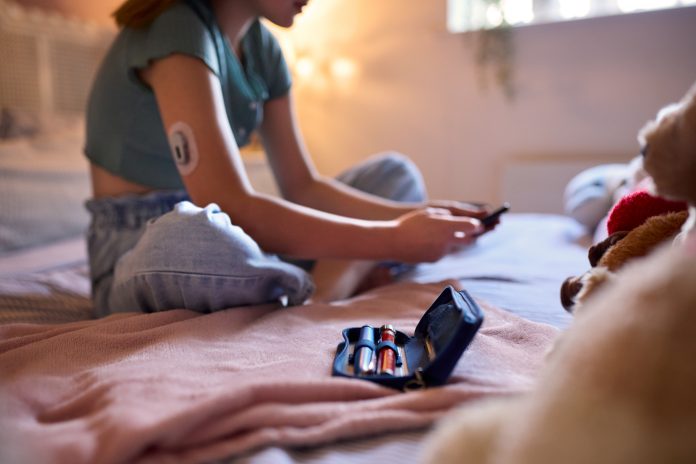Around 20,000 children and young people with type 1 diabetes in England now benefit from life-changing ‘artificial pancreas’ technology, recommended by NICE
Around three in five eligible children and young people have hybrid closed-loop systems, also known as artificial pancreas, which offer improved blood sugar control and transform daily life for families managing type 1 diabetes.
Following a NICE recommendation in December 2023, the uptake of hybrid closed-loop (HCL) systems increased from just over one-third to nearly two-thirds in a single year. Data from the National Paediatric Diabetes Audit (NPDA) shows that 62% were using hybrid closed-loop systems from April 2024 to March 2025, up from 36% in the same period the previous year.
Hybrid closed-loop systems act like an artificial pancreas
A hybrid closed-loop system is often referred to as an ‘artificial pancreas’. It has three parts: an insulin pump, a continuous glucose monitor (a sensor that measures glucose levels at any given moment) and an algorithm that makes them ‘talk to each other’ and adjust insulin delivery. They are managed through a smartphone app.
NICE has agreed to a 5-year rollout plan with NHS England, prioritising access to the technology for all children and young people.
Over 30,000 children and young people live with type 1 diabetes
In type 1 diabetes, the pancreas is unable to produce insulin, leading to elevated blood sugar levels. Without supplemental insulin, people with the condition would die. However, too much insulin can cause hypoglycemia, also known as hypos, where glucose levels become too low, which can also be dangerous. The goal is to keep blood sugar within a healthy range.
More than 30,000 children and young people are living with type 1 diabetes in England. Usual management involves finger-prick testing and injecting insulin multiple times a day. HCL systems remove the need for this and help prevent blood sugar emergencies, which can be life-threatening.
“Following NICE’s landmark recommendation in December 2023, the majority of eligible children and young people with type 1 diabetes in England now benefit from this life-changing technology, demonstrating the real-world impact of NICE guidance on improving healthcare outcomes and quality of life. This remarkable progress demonstrates the power of healthtech, when properly implemented, to transform lives as effectively as any medicine.
Our independent assessment committee carefully evaluated not just clinical effectiveness but also quality of life impacts, which are proving to be transformative for thousands of children and their families,” added Mark Chapman, director of HealthTech at NICE.
“Hybrid closed-loop technology is making a significant, life-changing difference for thousands of young people living with type 1 diabetes – improving their overall health, wellbeing and quality of life, and it’s encouraging to see this increase in take-up.
We’re proud to have contributed to the development of this transformative technology and continue to support efforts to ensure that everyone who is eligible can access it, regardless of their background or where they live,” added Anthony Walker, Senior Policy Officer at Diabetes UK.
“The NHS’s rollout of this innovative tech at pace and scale to thousands of children living with Type 1 diabetes is proving to be one of the biggest leaps in medical care for years following the publication of NHS England’s 5-Year Hybrid closed Loop Strategy, with highest ever investment.
I am particularly pleased to see that this transformative technology is enabling people- of all ages -with Type 1 diabetes to enhance their quality of life as well as delivering better clinical outcomes,” commented Professor Partha Kar, Type 1 Diabetes & Technology Lead, NHS England.








